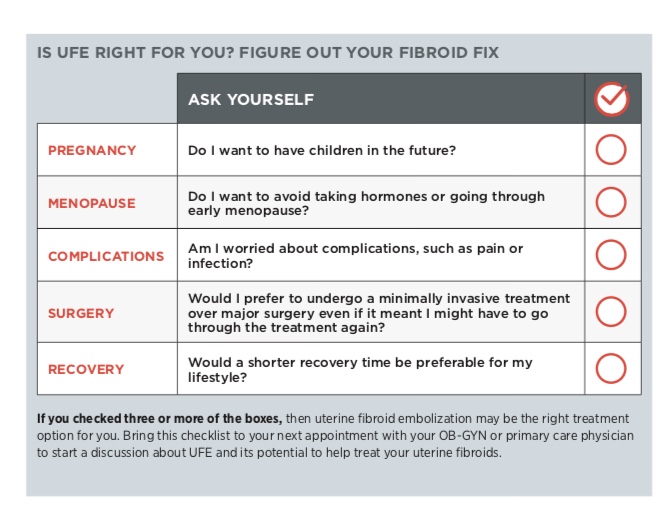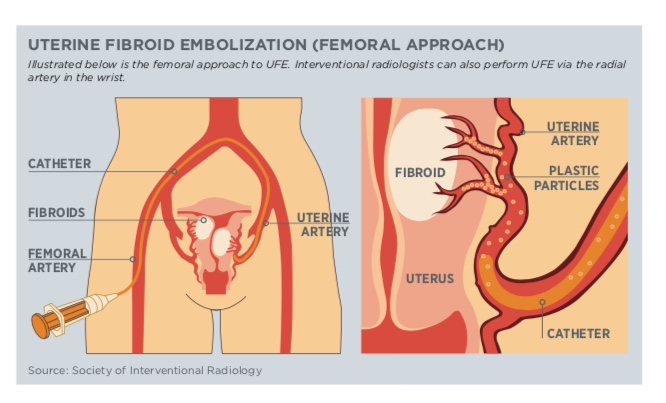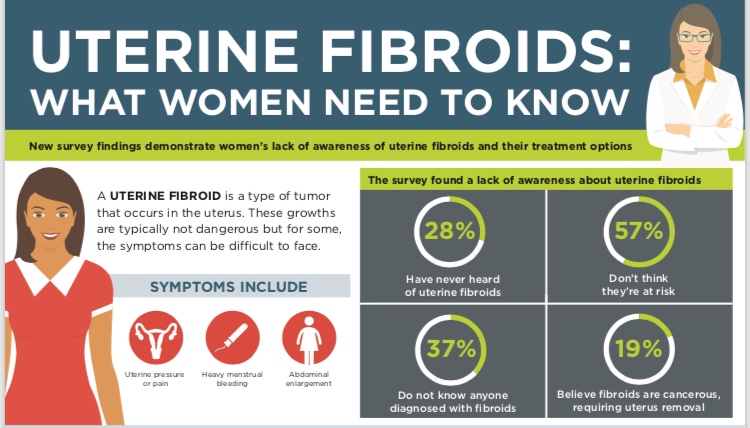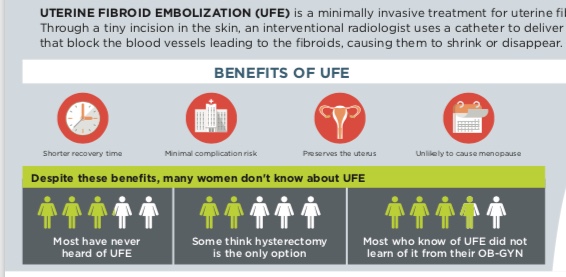What is Interventional Radiology?
Interventional radiology (IR) is a medical specialty that performs minimally invasive, image-guided procedures to treat diseases throughout the body. These treatments are often same-day procedures and result in less pain and shorter recovery times. An IR procedure is performed by creating a tiny incision in the skin, then small instruments are inserted and guided to the specific organ using imaging to deliver treatment.
One very effective IR procedure is Uterine Fibroid Embolization to treat uterine fibroids.
What are Uterine Fibroids?
Uterine fibroids are noncancerous tumors that grow in the uterus. Fibroids vary in size and while some women have no symptoms at all, others have symptoms that can be painful and disruptive. Some symptoms include:
- Uterine pressure or pain
- Heavy menstrual bleeding
- Abdominal enlargement
There are many options to treat uterine fibroids. Every 1 in 5 women believe that getting a hysterectomy is the only treatment available. Surgery may not be necessary for most women. One common treatment is Uterine Fibroid Embolization, known as UFE.
Uterine Fibroid Embolization (UFE)
UFE is a minimally invasive IR procedure used to treat uterine fibroids. It is performed by creating a tiny incision in the skin (typically near the groin) and with real-time imaging, a catheter is guided into the uterine arteries. Tiny particles are then released to block the blood flow that supplies oxygen to the fibroids, which will cause them to shrink or disappear.
Is UFE right for you? Here are the benefits:
- Minimally invasive/non-surgical
- Shorter recovery time
- Preserves the uterus
- Unlikely to cause menopause
For more information on uterine fibroid embolization, click here.
Our Interventional Radiologists
Our interventional radiologists are fellowship trained and certified by the American Board of Radiology.
Brian K. Brodwater, MD
Steven T. Crawford, MD
Andrew J. Hall, MD
Aaron D. Kline, MD





